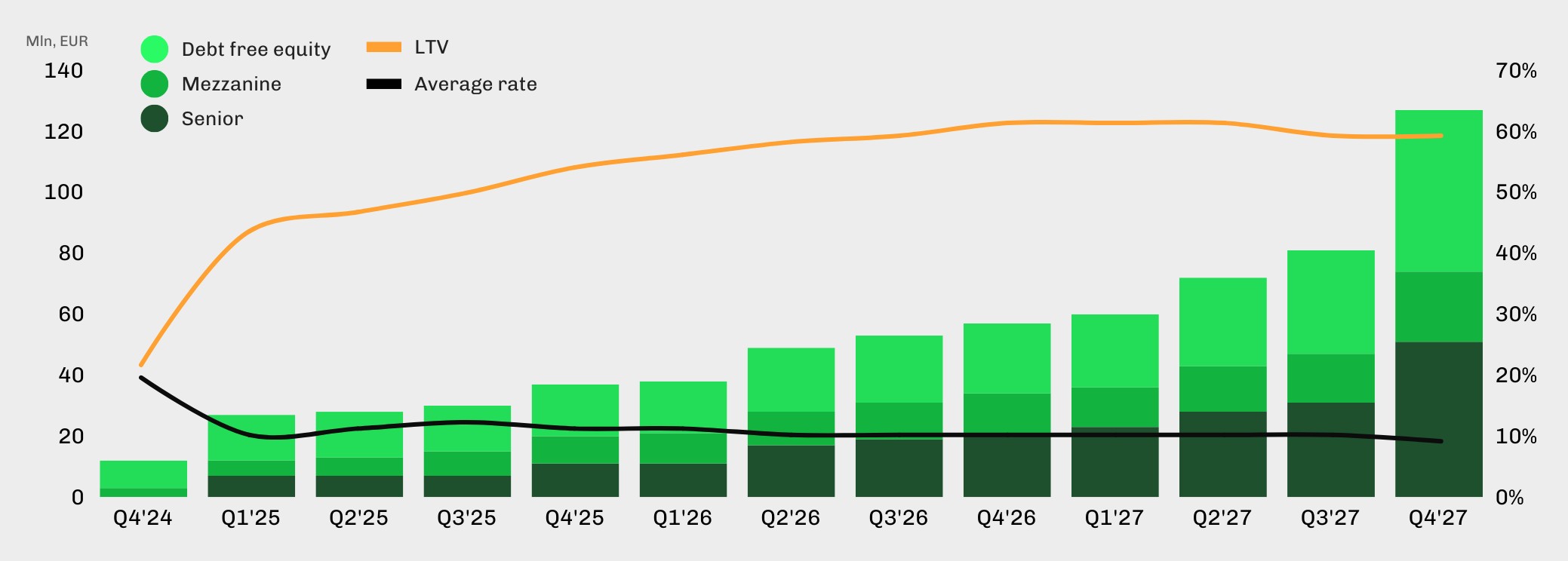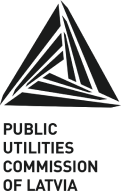We use cookies to enhance your experience on our website.
By continuing to use this website, you consent to our use of cookies.
How We Work
We acquire and develop regulated energy infrastructure companies in renewable energy, utilities, and
sustainability sectors.
project financing structure
We invite to lend to regulated companies secured by property, physical assets, and commercial pledges,
with Senior loans starting from 6% p.a. and Mezzanine loans reaching 20% p.a. or more.
For all our projects, most of the debt funding (60-80%) comes from large private lenders, institutionals, or banks, known as Senior lenders with a return of 7-11% per year. The remaining funding (20-40%) is covered by individual lenders and energy sector enthusiasts (Mezzanine loans), with an annual rate of return of 20% or more.
For all our projects, most of the debt funding (60-80%) comes from large private lenders, institutionals, or banks, known as Senior lenders with a return of 7-11% per year. The remaining funding (20-40%) is covered by individual lenders and energy sector enthusiasts (Mezzanine loans), with an annual rate of return of 20% or more.
Therefore, target average interest rate of senior and mezzanine debt funding
combined
is desired to be between 9-12% p.a.
Interest and principal repayments will come from revenues generated by the powerplants or proceeds from sale
of projects. See the Group's growth and funding structure below:

We structure our loans as follows:
- Senior loans with collateral
- Mezzanine loans with low LTV structure considerably below market value
main areas of operations
Sales of electricity
Group companies are regulated electricity and heat (CHP) producers based in Latvia. We trade produced electricity in the leading power market in Europe - Nord Pool exchange. Ventus Energy clients are large electricity consumers and/or traders, ensuring a stable and predictable revenue stream.
Grid balancing
Producing less electricity from natural gas and more from wind and solar reduces emissions and increases energy independence. However, because renewable energy is unpredictable, it adds pressure on the grid to maintain a constant balance between supply and demand. This makes grid balancing increasingly important worldwide. Ventus Energy Group companies are part of the grid balancing market.
Heat production
As we specialize in developing cogeneration power plants, one of the products we produce is Heat. The power plants are connected to the municipal heating system of the respective region, and there are contracts with relevant local institutions for long-term service provision (for example, Powerhouse Daugavpils is connected to the district heating system owned by Daugavpils municipality).
Regulation of the
electricity sector
electricity sector
In Latvia, the energy sector - including electricity and heat production as well as grid balancing
services - is regulated and supervised by several institutions:
The Public Utilities Commission (PUC)
PUC is responsible for licensing, determining the methodology for the calculation of tariffs, and supervising compliance of the public utilities of energy, telecommunications, water supply, and other public services.
The Ministry of Climate and Energy
Formerly known as the Ministry of Economy, it develops and oversees the national energy policy, ensuring sustainable energy production and consumption. Its responsibilities include improving energy efficiency, promoting renewable energy sources, and ensuring energy security.
The Riga Energy Agency
Municipal institution of the city of Riga. The agency was established as part of the European Union's international program "Intelligent Energy - Europe." It operates independently with the primary responsibilities of managing and coordinating energy supply and enhancing energy efficiency within the Riga municipality.
Latvian Cogeneration Power plant association
The Association protects its members from unfavourable regulatory changes and fosters cooperation with government bodies. It promotes cogeneration plant development in Latvia, provides legal assistance, conducts market research, and enhances public recognition of cogeneration power plants.






